Gateway House launches first Quad Economy and Technology Task Force
The Task Force led by Gateway House will study economic and technological cooperation between the four like-minded democracies in the Indo-Pacific.
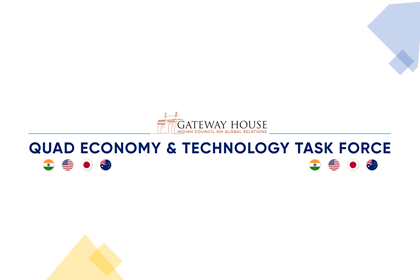 Courtesy: Gateway House
Courtesy: Gateway House
The Task Force led by Gateway House will study economic and technological cooperation between the four like-minded democracies in the Indo-Pacific.
 Courtesy: World Economic Forum
Courtesy: World Economic Forum
In March 2021, the World Economic Forum (WEF) announced the addition of 15 manufacturing facilities to the prestigious Global Lighthouse Network. Two Indian companies were on the list – the Tata Steel facility in Jamshedpur, and the ReNew Power facility in Hubli. This is twice the number of Indian companies on the list last year. Many more facilities will likely be added to the WEF list, as several prepare to graduate their manufacturing businesses to keep up with Industry 4.0.
 Courtesy: Shutterstock
Courtesy: Shutterstock
Individuals now generate copious amounts of personal data everyday – both online and offline. Devices and infrastructure extract data, which can be shared instantly across borders with diverse entities - without consent. It is imperative that countries come together to create regulations to protect individuals who are unable to control how their data is shared and processed. A model already exists in the Paris Climate Agreement.
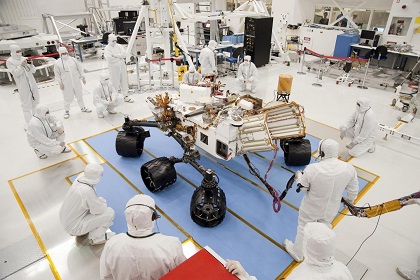 Courtesy: NASA/JPL-Caltech
Courtesy: NASA/JPL-Caltech
With an increasing human and robotic footprint in the solar system, there is a need to develop robust regulatory mechanisms to prevent the “forward” and “backward” biochemical contamination of these unexplored celestial bodies.
 Courtesy: Shutterstock
Courtesy: Shutterstock
Big Tech wields considerable influence over commerce, speech, media, and politics. Mergers and acquisitions have been key to their burgeoning growth. Now it is clear that their power is buttressed by anti-competitive and predatory practices. Governments across the world are moving to redress this through regulation, but the task is complex.
 Courtesy: Shutterstock
Courtesy: Shutterstock
In its recent itineration, the Quad (or the Quadrilateral Security Dialogue) has been toiling since 2017, through deliberations among mid-level and senior officials, to develop a common vision for the challenges facing the Indo-Pacific region, challenges caused by China's menacing rise and aggressive behaviour.
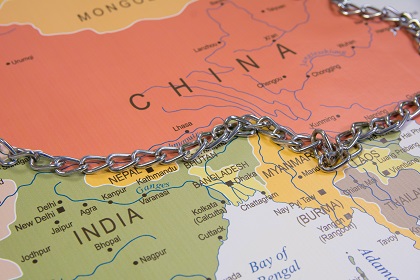 Courtesy: Shutterstock
Courtesy: Shutterstock
On 18 Feb 2021, China and India completed a week-long border disengagement at Pangong Tso, ending a 10-month standoff. The Indian Army's Operation Snow Leopard, launched in late August 2020, provided India with strategic and tactical leverage during the negotiations. More broadly, India combined its political, technological, economic and diplomatic forces, creating a Comprehensive National Defense to counter Chinese adventurism. This infographic tracks the chronology of Indian actions, starting with the border standoff from Jan 2020 to last month's disengagement, nearly a year later.
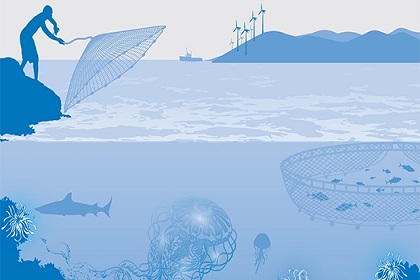 Courtesy: Common Wealth
Courtesy: Common Wealth
The Indian Ocean Region (IOR) presents a unique opportunity to develop a Blue Economy, with security, sustainability and business profitability as its three pillars. An IOR Defence Ministers' Conclave held on 4 February provided a platform to discuss regional cooperation, linking development with defence, and emphasized India's pivotal position within the IOR.
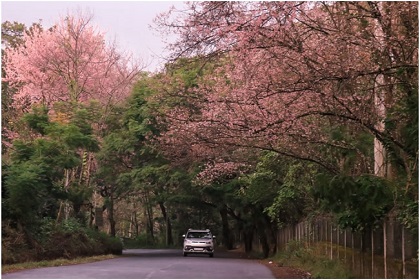 Courtesy: Government of Meghalaya
Courtesy: Government of Meghalaya
Japan and India’s North East are culturally contiguous – and have been for centuries. From their monoliths and cenotaphs, to the sacred bamboo and house construction, the old similarities are now being carried into the future by the younger generation of North Easterners, who admire and seamlessly blend Japanese creative influences like anime, food and street style, into their own.
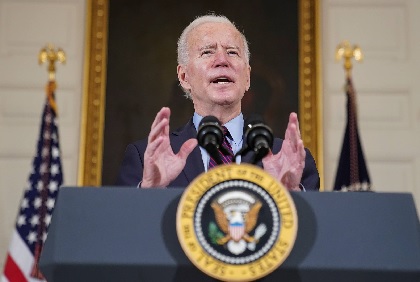 Courtesy: Twitter
Courtesy: Twitter
As President Joe Biden completes his first month in office, his foreign policy on China and the Indo-Pacific will come under scrutiny. The choices made will be significant as they will define the future prospects of the Quadrilateral Security Dialogue. Given China’s long-term and comprehensive challenges, which encompass both, security and economy-technology, the Quad will have to respond with a matching strategy.